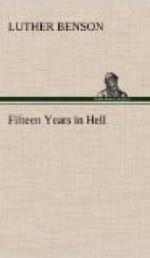I write this with a hope that it may be a heeded warning to the intellectual of earth, not less than the illiterate. The educated man is more liable to suffer from strong stimulants than the man who is not educated. Never was there a greater or more dangerous fallacy than that so often urged, that the thinking functions are assisted by the use of stimulating liquors or drugs. O, say some, Byron owed a great portion of his inspiration to gin and water, and that was his Hippocrene. Nonsense! His highest inspiration came from the beauty of the world and from God. Lord Brougham, it has been declared, made his most brilliant speeches of old port. Sheridan, it has been told, delivered some of his most sparkling speeches when “half seas over.” Eugene Sue found his genius in a bottle of claret; Swinburne in absinthe, and so on. But who shall say what these great, men lost and will lose in the end by this forcing process? Dr. W.B. Carpenter, in referring to the supposed uses of alcohol in sustaining the vital powers, says emphatically that the use of alcoholic stimulants is dangerous and detrimental to the human mind, but admits that its use in most persons is attended with a temporary excitation of mental activity, lighting up the scintillations of genius into a brilliant flame, or assisting in the prolongation of mental effort when the powers of the nervous system would be otherwise exhausted. Concede this, and then answer if it is not on such evidence that the common idea is based that alcohol is a cause of inspiration, or that it supports the system to the endurance of unusual mental labor. The idea is as erroneous as the no less prevalent fallacy that alcoholic stimulants increase the power of physical exertion. Physiologically the fact is established that the depression of the mental energy consequent upon the undue excitement of alcoholic stimulants is no less than the depression of the physical energy




